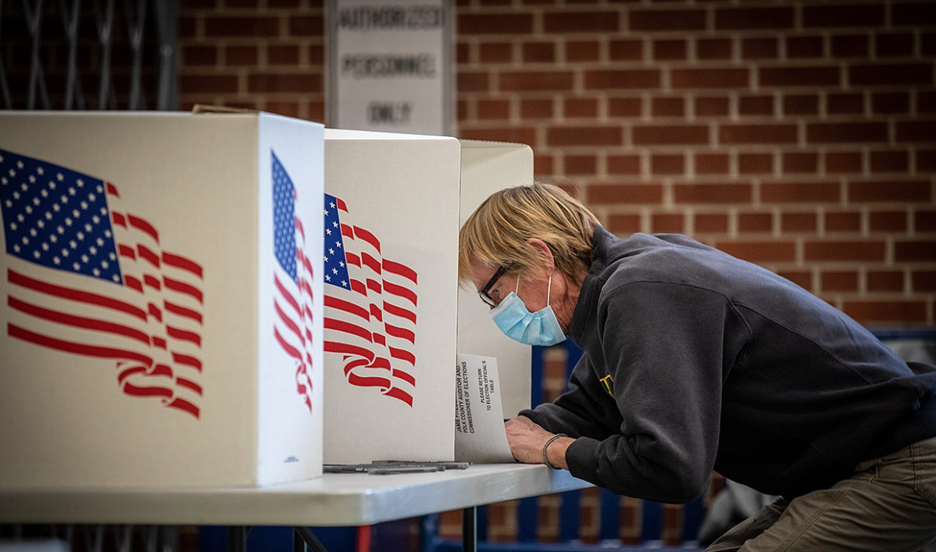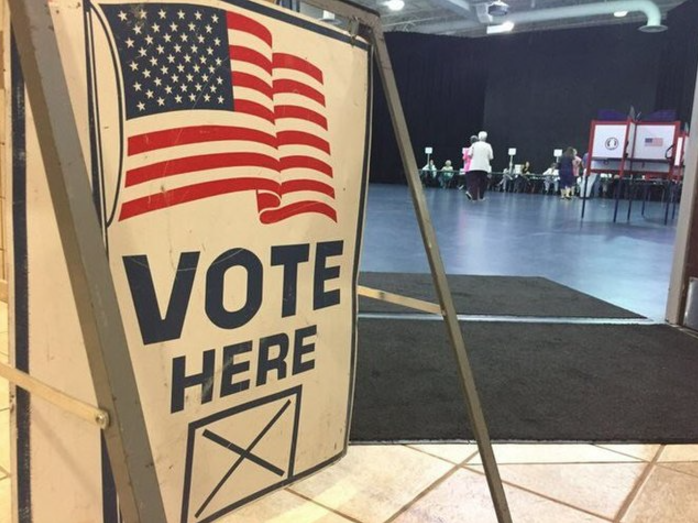|
November 16, 2024 Local and state election results reflect a shift in attitude toward crime and policing
PERF members, While most of the country’s attention has focused on the presidential election, the results from state and local elections reflect a turning point in how municipalities address crime. This may signal a change in what communities expect from their local police. Here are some of the key recent state and local election results:
Voters cast ballots in Des Moines, IA. Credit: Phil Roeder/Wikimedia Commons Police hiring and retention Colorado voted to appropriate $350 million to hire and retain police officers (53 percent approved). Dallas voters passed a proposition requiring the city to increase the number of sworn officers from just over 3,000 to at least 4,000 and appropriate at least half of new city revenue for that purpose (50 percent approved). Criminal penalties California passed a measure increasing penalties for fentanyl-related drug crimes, repeated theft offenses, and “smash and grab” thefts (69 percent approved). Immigration enforcement Arizona passed a proposition allowing police to arrest immigrants who cross the U.S.-Mexico border illegally (63 percent approved), though it will not go into effect until Texas or another state passes a similar law. Homelessness enforcement Arizona also passed a measure allowing property owners to apply for a tax refund if a municipality does not enforce laws related to homelessness and disorder (59 percent approved). Gun policy Colorado residents voted in favor of taxing gun and ammunition sales to fund mental health services (54 percent approved). Memphis voters passed three gun laws that cannot be enacted without a change in state law: a permit requirement for handguns (81 percent approved), an assault weapons ban (80 percent approved), and a “red flag” law (84 percent approved). Drug policy Marijuana legalization ballot initiatives failed in Florida (56 percent approved, but 60 percent was needed for passage), North Dakota (53 percent rejected), and South Dakota (56 percent rejected). Medical marijuana was legalized in Nebraska (71 percent approved), and Dallas voters passed a marijuana decriminalization measure (67 percent approved). Massachusetts voters rejected the legalization of psychedelics (57 percent rejected). Prosecutors In California, incumbent Los Angeles District Attorney George Gascón, who was elected as a reformer in 2020, lost to Nathan Hochman, who ran on a promise to roll back some of Gascón’s reforms. San Francisco District Attorney Brooke Jenkins, who was appointed then elected in 2022 after reform-minded District Attorney Chesa Boudin was recalled, won reelection. Alameda County District Attorney Pamela Price and Oakland Mayor Sheng Thao, both of whom served as progressive reformers, were recalled. In Florida, two prosecutors who Governor Ron DeSantis removed for failing to enforce state laws ran for their old positions. Monique Worrell was elected to her former position as state attorney in Orlando, while Andrew Warren lost the election for his former state attorney role in Hillsborough County.
Credit: Terri Sewell/Wikimedia Commons What should we take away from these election results? Four years after the calls to “defund the police,” the electorate is generally swinging back in favor of more enforcement-minded approaches and increased policing. But cities are hard-pressed to hire and retain cops. Dallas’s initiative aims to increase staffing by nearly 1,000 officers, but city leaders think that is unrealistic. The pushback on policing we saw in 2020 has had a lingering effect on the profession. In many cities, police have more resources than ever before and are able to offer signing bonuses of up to $25,000, but even those jurisdictions are struggling to attract enough candidates. And California passed a ballot initiative addressing retail theft, which has emerged as a concern across the country. Five years ago, PERF brought together prosecutors from big cities who were not pursuing charges in some of these cases, but now these crimes are receiving greater focus from police and the community in many cities and counties. And Arizona’s immigration enforcement proposition reminds me a bit of SB 1070, which was passed in 2010 and partially struck down by the Supreme Court in 2012, though this new measure is different. Arizona chiefs took issue with SB 1070 and came to Washington to meet with then-Attorney General Eric Holder. Tucson Chief Chad Kasmar told me there is still strong pushback from local police when asked to do the work of federal law enforcement. He plans to prioritize the maintenance of public trust with all Tucson residents by ensuring everyone is comfortable reporting crimes to his agency. If serious crimes are not investigated because residents are not comfortable contacting local police, perpetrators will remain free to offend again. Finally, there seems to be no clear consensus on drug legalization, but police are paying close attention to Oregon’s recent decision to roll back its 2020 drug decriminalization measure. Of course, these results aren’t necessarily representative of the entire country’s views, as we have more results from some states, like Arizona and Colorado, than others. But I think they’re largely consistent with the general sentiment in the country. People want more police officers, and they want prosecutors who will pursue charges in the cases that reach their desks. Best, Chuck |


